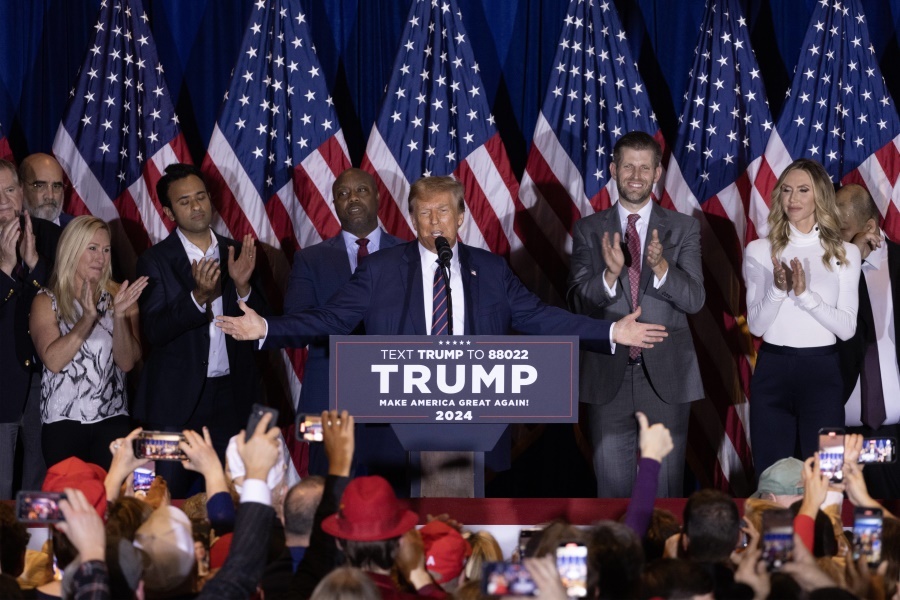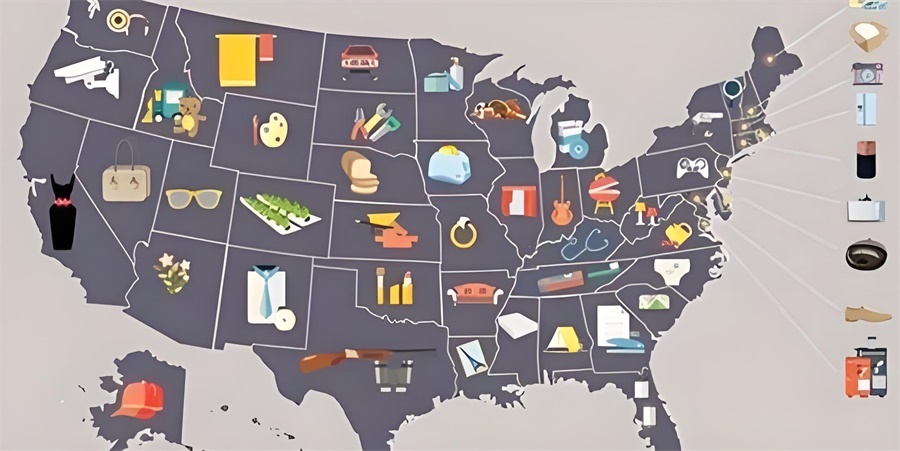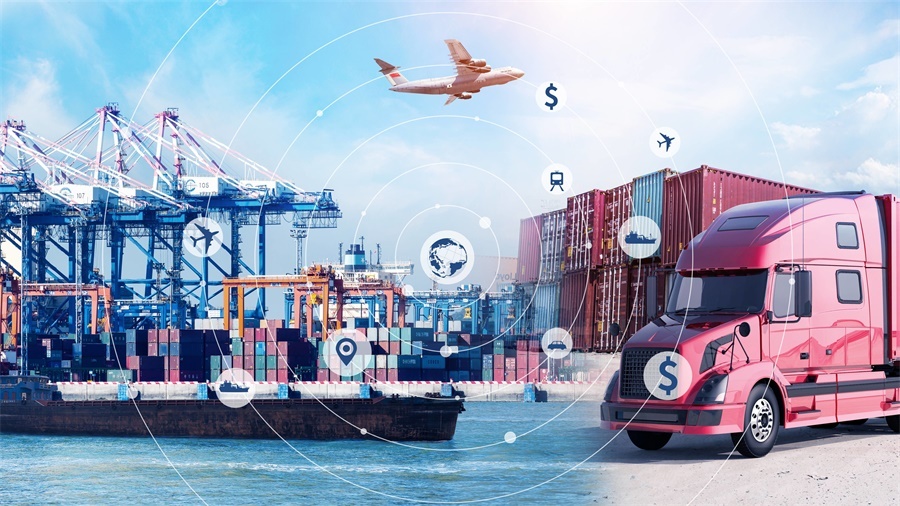Trump was famously called “ Tariff man ” Many cross-border and foreign trade people are still worried about the tariff increases imposed during Trump's first term (2016-2020). At that time, the Trump administration imposed tariffs on China, which directly led to a decline in the proportion of China's total exports to the United States, from 19.24% in 2018 to 16.75% in 2019.
Over the years, Trump still believes that foreign imports of products, “ Taking jobs away from local Americans. . During the election campaign, Trump said that once elected, he would impose tariffs of at least 15% on foreign imports across the board. If it is “ Competitive nations ” Trump said he would impose tariffs of 60 percent, or even 100 percent or 200 percent. This means that sellers send bulk goods to the United States overseas warehouse, or will bear high tariffs, then, with the election of Trump, the establishment of the new government of the United States, what does it mean for cross-border e-commerce?

According to EZEJ technology, the election of Trump has at least the following significant impact on cross-border e-commerce and overseas enterprises:
First, US stores and local e-commerce will get more opportunities: Trump has been stressing “ America First ” And emphasized the protection of American companies. This means that there will be more opportunities for US local e-commerce platforms and local sellers.
It is expected that the next US local store (such as Amazon's US local store) will become an important resource for cross-border e-commerce. “ Local store opening ” Service, or will become a hot business. Taking root in the United States and achieving greater localization will be the general trend of cross-border e-commerce. In contrast, sellers who operate cross-border stores will encounter more uncertainties, including tariff increases, policy changes, and so on.

Second, the tariffs will make the price of many goods skyrocket: Currently, most Amazon sellers use the FBA operating model, which is to ship goods in bulk to Amazon's US warehouse.
In this case, logistics companies generally adopt “ Double clearance tax ” Customs duties are included in the initial cost.
In his campaign speech, Mr Trump declared that tariffs were “ The most beautiful word in the dictionary ” . This means that after he enters the White House again, he will continue the previous policy of imposing tariffs on China.
At that time, many cross-border e-commerce sellers will also face rising tax costs by sending goods in bulk to overseas warehouses. If some sellers operate in a category that happens to be “ Punitive tariffs ” The scope of the levy, then, this kind of seller will become very difficult.
On Monday, the National Retail Federation warned that U.S. consumers could lose as much as $78 billion in annual spending power if Trump's new tariffs are implemented, which could lead to soaring prices for clothing, toys, furniture, home appliances, footwear and travel goods, especially those whose main supplier is China. Will face a relatively large increase in prices.

Third, logistics fees may rise in the short term: Because of concerns about Trump's tariffs, many sellers will stock up in advance. Everyone swarmed over, forming a squeezing effect, directly leading to sea, air and other demands in the short term to surge, causing logistics costs to skyrocket, at the same time, leading to tight positions, insufficient capacity, supply and demand imbalance, port congestion and a series of chain reactions. In addition, Trump may adjust the logistics and transportation policy of international trade, strengthen the management of ports and customs, improve the inspection standards of goods, etc., or will affect the transportation efficiency, extend the customs clearance time of goods, and thus increase logistics costs and transportation risks.

Fourth, the dollar or depreciation, the seller's profit is compressed: Mr Trump is keen to boost domestic manufacturing and reduce the trade deficit. One of his tactics was to intervene to weaken the dollar.
For cross-border sellers, the lower exchange rate of the dollar means that the profit of selling products to the United States will fall in the short term.
If Trump intervenes in the exchange rate by pressuring the Federal Reserve to cut interest rates, on the one hand, it can stimulate consumption and may allow sellers to sell more goods, but cutting interest rates too quickly may lead to further deterioration of inflation and eventually bite the market.

Five, TikTok may actually be safer: Trump's attitude toward TikTok has changed dramatically from his presidency, claiming that “ Will never ban TikTok” . Trump has said it would be difficult to ban such platforms because we have to respect free speech. There are many other factors to consider when dealing with this issue, but he personally has a positive view of TikTok and thinks it has served him well.
For now, Trump has become &ldquo on TikTok; Top Internet celebrity ” ", with an action to show a support.

Six, supply chain transfer: In the face of high tariffs, some cross-border e-commerce companies may consider transferring the supply chain, moving the production base overseas, including Southeast Asia, Latin America and other countries or regions with lower tariffs, and then exporting goods from these places to the US.
Southeast Asia and Mexico have become hot places to go to sea.
Mexico, a close neighbor of the United States, has become a big winner, and many Chinese enterprises have gone to Mexico to set up factories.
However, Trump sees this as well, and he not only plans to remove China's most-favoured-nation status and impose a high 60% tariff, but also plans to impose additional tariffs on electric vehicles (made by Chinese companies) manufactured in Mexico and sold to the United States.
Trump may target those who detour from China to the US “ Alternate exit mode ” And take new measures to prevent restrictions or ban this model. Trump's purpose is to return manufacturing to the United States, but for Chinese companies to directly enter the United States to set up factories, Trump's attitude is not clear.

Overall, Trump's policies are fraught with more uncertainty than those of his first term. Handsy ” In his second term, he will show stronger determination. Cross-border e-commerce merchants should pay close attention to the situation and prepare countermeasures in time.
END
No matter what the impact of Trump's policies after the election, as cross-border e-commerce practitioners, we should have an optimistic attitude, actively respond, believe in the strong industrial supply chain of the motherland, more from the crisis to find opportunities, of course, we should also seriously study and analyze the future policy of the United States, as the world's only superpower, but also the strongest country of consumption. We want to do a good job in cross-border e-commerce, it is absolutely impossible to bypass each other or each other's scope of influence, so EZEJ Technology suggests that small partners, calm down, actively respond, do a good job, lay a solid foundation, believe in the motherland, the future will naturally get better and better, with this article, please encourage.

